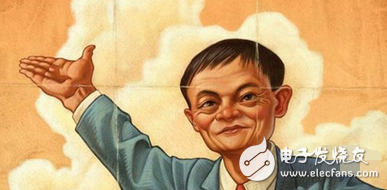Will VR companies have the opportunity to become giants when they live?
In 2016, it was regarded as “the first year of VRâ€. A large number of developers and startups poured into the VR industry. However, since the second half of the year, the VR market has begun to be pre-cooled due to factors such as immature hardware and difficulty in ensuring content continuity. At this stage, due to the unclear profit model and the loss of half of VR companies, this emerging market cannot escape the impact of the VR bubble.
Chen Deming, former Minister of the Ministry of Commerce of China, said at the Boao Forum, "There are some bubbles in the VR market, which need to go through the market's survival of the fittest, let some bubbles break, and let better quality VR companies go." From this point of view, What type of VR companies might be out of this bubble? The layoffs and bankruptcy that began in the second half of last year can be used as a reference.
Which VR companies are easy to fall?Some investors say that when you look at whether a company has value, either look at their profitability, or they have a deep knowledge accumulation, which allows them to take advantage of long-term competition. And if you invest in early projects (such as the current VR market), the criteria include: market opportunities, teams and products.
From the perspective of layoffs and bankruptcies since last year, many VR teams lack substantial breakthroughs, such as domestic storm mirrors, Mido Entertainment, LeTV VR, foreign Vrideo, etc., or lack of attractive technology, or lack of The temptation to attract users back to the platform will ultimately lead to a lack of funds and a road to layoffs or bankruptcy.
On the other hand, the management team cannot be ignored. Take the perfect fantasy as an example, the company entered the panoramic camera industry very early and received investment from institutions such as Intel. However, due to the vague positioning (unwilling to give up the professional market and want to hit the consumer's mind), the intensified competition (incoming Nokia, Facebook, Jaunt, etc.) caused the financing to be blocked and other factors, and ultimately failed.
How can VR companies survive?
Today's VR bubble reminds us of the Internet bubble in 2000: in the stock markets of Europe and the United States, the stocks of technology and emerging Internet related companies rose rapidly, and then spread to Asian stock markets and even China's stock market. After the bubble subsided, many Internet companies burned out the wind and stopped trading, and many of them have not even made a profit.

It is said that the most sensational statement at the time was that a bowl was written. Com's ä¹žä¸ can get tens of millions of dollars in venture capital. This is similar to how many entrepreneurs in the first half of the year flooded into the VR industry and easily got financing. As capital becomes more rational, VR bid farewell to "savage growth" into the shuffling period, those companies that survived from the Internet bubble and succeeded in making it bigger are worth learning and learning from VR practitioners.
Alibaba, China's largest e-commerce platform, has experienced the baptism of the Internet bubble. It is said that Ma Yun has a heartfelt intuition that the Internet will change the world. In 1995, Ma Yun invited 24 friends to learn about the needs of foreign traders for the Internet. In the end, 23 people said that they should forget it. Only one person said that you can try it and you can't escape. But Ma Yun thought about one night, and decided to do it the next morning. "Even if 24 people are against me, I have to do it."

The first Internet product that Ma Yun was involved in was the “China Yellow Pagesâ€, which was regarded by many as “swindlersâ€. At the end of 1997, China's Yellow Pages achieved profitability, but after the cooperation with Hangzhou Telecom, the two sides had differences and Ma Yun decided to give up the website. It was also this year that Ma Yun began to get in touch with foreign trade and business, and the idea of ​​doing B2B websites began to mature. In 1999, Ma Yun established Alibaba, which received $5 million in financing from Goldman Sachs and $20 million in financing from Softbank Sun.
In this comparison, HTC's bet on VR is very similar to that of Ma Yun. Although there are some bubbles in the VR market, for HTC, VR stands for the future and is expected to change the world. The company recently sold its mobile phone manufacturer in Shanghai and used the proceeds for VR investment; HTC also emphasized the importance of eco-experience and laid out the VR market through a combination of hardware and software. Chairman Wang Xuehong believes that the outbreak of the VR application market will come two years later, "so we have to quickly lay out."
Also worth learning is the search giant Google, one of the founders of the company, Brin sees the Internet as the only way to the future. In 1998, Page and Brin demonstrated Sun's co-founder Andy Bechtolsheim a new Internet search technology that successfully secured a $100,000 investment. In September of the same year, Google was formally established. In an interview in 1995, Page made it clear that the future catch-up target is Internet companies such as Yahoo.
Google’s success comes from innovation. At the time of Google’s creation, the industry’s understanding of Internet search was that the higher the frequency with which a keyword appeared in a document, the more prominent the document’s position in the search results. Brin believes that the factors that determine the location of a document in search results are the frequency with which a document appears on other pages and the credibility of those pages. The popularity and quality of the page in the audience is a decisive factor.
Another interesting story is that Google is so succinct because the two founders don't understand HTML technology. For a long time, the user can only search by clicking the Enter key (it doesn't even have a "Submit" button). But with innovative technology, Google spent the Internet bubble and reached an unpredictable level of Page and Brin.
If you live, you have the opportunity to become a giant?Of course, even with innovative ideas and technologies, it is very difficult to start a business. Many founders have had the idea of ​​selling the company, but they have been squandered because they have not taken over, and finally they have the later commercial giants. This is the most famous non-Ma Huateng who wants to sell 1 million QQ. In 1998, Ma Huateng developed the first Chinese version of ICQ-QICQ, the predecessor of QQ. In 1999, Tencent's instant messaging service was launched, and by 2000, the number of QQ registered users exceeded 10 million.
However, due to the harsh winter of the Internet in 2000, Tencent, which lacked the method of realizing it, was in a difficult situation, letting Ma Huateng want to sell QQ to ensure that the company survived. Interestingly, Ma Huateng plans to transfer QQ for 1 million yuan, but it is considered that the price is too high to find a suitable buyer. Finally, Ma Huateng decided to leave QQ and raise himself. Let's take a look at Tencent's market capitalization of 2 trillion Hong Kong dollars. If you can go back to the past, I am afraid that some buyers want millions of dollars to buy QQ, and Ma Huateng will not be moved.
Other founders want to sell the company's case, including Ding Lei "three times to sell NetEase", in 1999 Google wants to sell $1 million, and Zuckerberg wants to sell Facebook in the early days. And the rise of these companies can not afford to be a "comfort" for the tough entrepreneurs in the VR industry: there is an opportunity to become a giant when you live.
Additional services increase VR valueAlthough the VR industry is still immature, it has penetrated into education, games, movies, real estate and other industries. Last year, for example, VR offline experience stores can be described as all over China, but many entrepreneurs got together to experience the VR offline experience store, which also caused many businessmen to escape offline offline experience store mode.
Last year, the number of VR offline experience stores in China exceeded 3,000, but many merchants mainly used low-end VR egg chairs, and lacked attractive VR content, making it difficult to obtain repeat customers. On the other hand, the content homogenization of many VR offline experience stores is serious, and even many games are demos, resulting in a VR experience that is not very good.
In addition, the VR offline experience store not only lacks a good profit model, but also may face hardware changes and multiple offline experience stores gather in the same business circle, thus causing the operators not to make money. But we also saw that some teams have achieved relatively good results through VR+ light dining, or a combination of VR and cinema. This also tells us that VR practitioners can enhance their appeal through additional services in addition to technical and content experiences.
At present, if a company only wants to obtain funds through the concept of speculation (such as a short-lived VR box), it can not create real value for users, or enter the market too early, can not wait for the industry to mature (such as Microsoft broke out in the tablet market) Ten years ago, when the Tablet PC was launched, it would be a failure to end. Xiaobian hopes that entrepreneurs can think deeply about their strengths, users or market needs, so that they can lead their team through the VR bubble.

15v wall charger,15 Watt Power Supply,15v ac dc adapter,AC Wall Charger Power Adapter,AC/DC Charger Power Supply Switching Adapter,DC 15V Global AC / DC Adapter,15VDC Power Supply Cord Cable Wall Charger,15VDC800 Charger PSU
Shenzhen Waweis Technology Co., Ltd. , https://www.huaweishiadapter.com